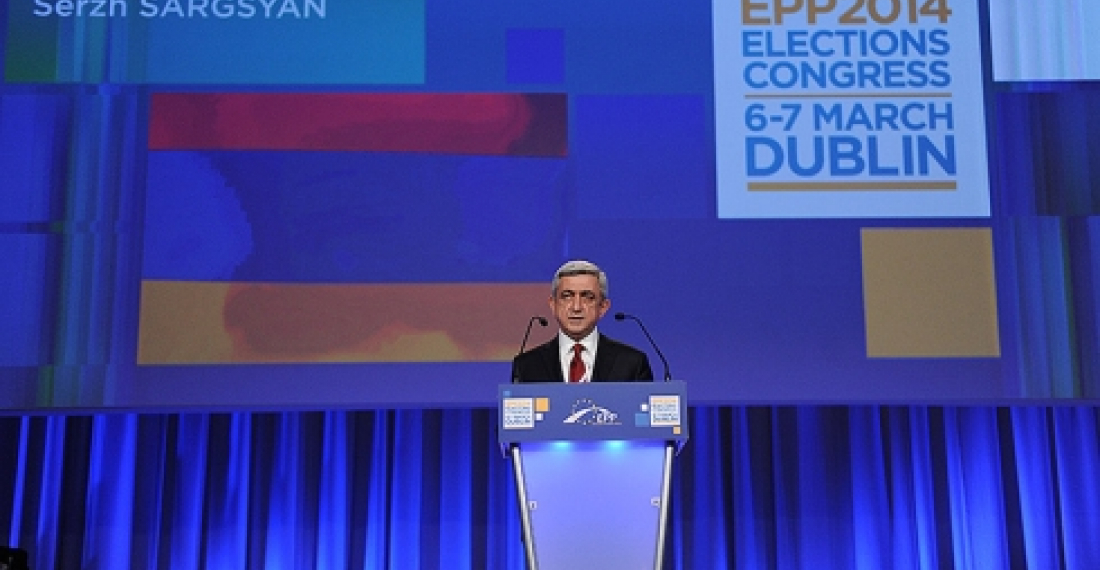President Serzh Sargsyan of Armenia has made his first comments on the situation in Ukraine when he addressed the Congress of the centre right grouping, the European People's Party (EPP) during its congress in Dublin. Sargsyan made a fleeting reference to the crisis in Ukraine in his short address during which he accused Turkey and Azerbaijan of xenophobia. On Ukraine Sargsyan said,
"The Ukrainian events are a matter of serious concern to all of us. We regret profoundly that numerous human lives' losses were registered in Kiev. Under the existing circumstances it is necessary to take all possible measures in order to ease the tension and find reasonable solutions through dialogue."
Leaders of the new Ukrainian ruling political forces, Timoshenko and Klichko also addressed the Congress.
On relations with the European Union Sargsyan said, "As in the past we believe that expanding and deepening relations with a partner should not result in the emergence of new dividing lines. Armenia will continue its policy of complementing and harmonizing interests."
He added, "We are committed to continue our efforts at seeking effective cooperation mechanisms with the EU, which will both reflect the essence of the preceding discussions we had with the EU and are compatible with the other cooperation formats."
In September 2013 Armenia abandoned plans to enter into an Association Agreement with the European Union and opted instead for full membership of the Russia led Customs Union.
You can read the full text of the speech on the web site of the President of Armenia here
source: commonspace.eu
photo: President Saregsyan addressing the Congress of the European People's Party (EPP) in Dublin on 6 March 2014. (Picture courtesy of the Press Service of the President of Armenia.







